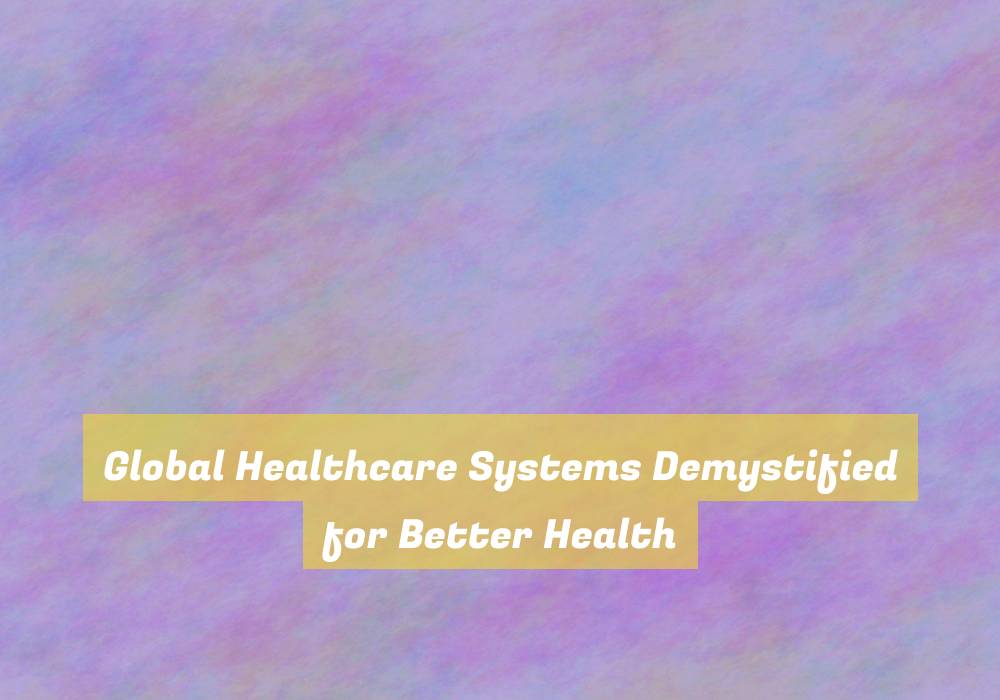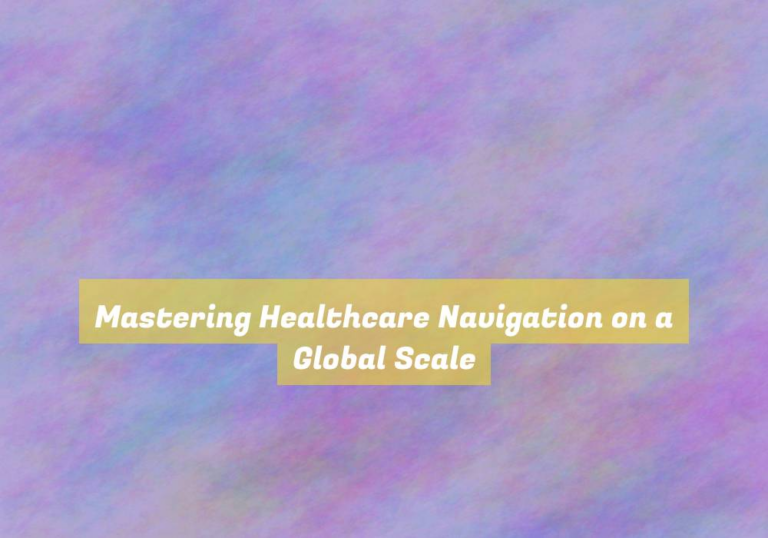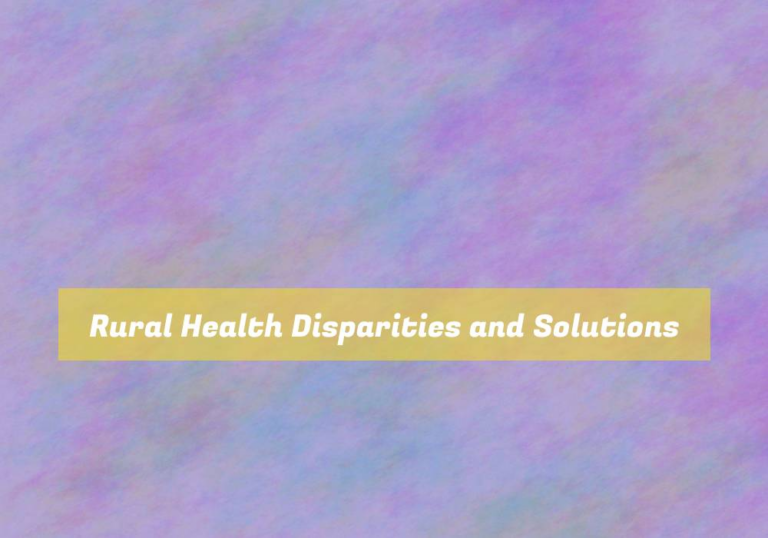Global Healthcare Systems Demystified for Better Health
Imagine healthcare systems around the world as a complex puzzle, each piece representing a different model, approach, and set of challenges. As you unravel this intricate puzzle, youG??ll gain a deeper understanding of how these systems impact global health outcomes.
From the factors influencing healthcare access to the comparative analysis of different healthcare models, thereG??s a wealth of information waiting to be explored. Understanding these intricacies could be the key to unlocking better health for individuals and communities worldwide.
Understanding Different Healthcare Models
Understanding different healthcare models can be complex, but itG??s essential for making informed decisions about healthcare.
In the United States, the healthcare system is primarily based on private health insurance, where individuals can choose their own healthcare providers and services. This model provides flexibility but can also lead to high costs and disparities in access to care.
In contrast, the United Kingdom has a publicly funded healthcare system, the National Health Service (NHS), which provides comprehensive care to all residents regardless of their ability to pay. This model offers universal coverage and reduces financial barriers to healthcare, but it may also face challenges such as longer wait times for certain treatments.
In Germany, they utilize a social health insurance model, where individuals contribute to insurance funds based on their income, and the government also subsidizes those who canG??t afford coverage. This system combines aspects of both private and public models to ensure access to high-quality care for all citizens.
Understanding these different healthcare models can help you navigate the complexities of healthcare and make informed choices about your own well-being.
Factors Influencing Healthcare Access
Improving healthcare access requires understanding the various factors that influence individualsG?? ability to obtain timely and affordable medical services.
One critical factor is geographical location. In rural areas, access to healthcare facilities may be limited, leading to longer travel times and higher costs.
Additionally, economic status plays a significant role. Lower-income individuals often struggle to afford healthcare services, leading to delayed or neglected medical treatment.
Another influential factor is the availability of health insurance. Those without insurance coverage may face substantial out-of-pocket expenses, making healthcare services unattainable.
Furthermore, cultural and social factors can impact healthcare access. Language barriers and cultural differences may hinder effective communication and understanding between healthcare providers and patients, leading to suboptimal care.
Moreover, the presence of healthcare facilities and healthcare professionals in a particular region greatly affects access. Areas with a scarcity of medical professionals may experience longer wait times and reduced quality of care.
Lastly, government policies and regulations can either facilitate or impede healthcare access through funding, infrastructure development, and healthcare system organization.
Understanding and addressing these factors are essential in ensuring equitable access to healthcare services globally.
Comparative Analysis of Healthcare Systems
Conducting a comparative analysis of healthcare systems allows for a comprehensive understanding of the strengths and weaknesses present in different global healthcare models. By comparing various healthcare systems, you can gain insights into the effectiveness of different approaches to healthcare delivery, financing, and quality.
This analysis helps in identifying best practices that can be adopted to improve healthcare systems in your own country. It also enables the identification of potential pitfalls that should be avoided.
Comparative analysis allows you to assess the level of accessibility and affordability of healthcare services, the quality of care provided, and the overall health outcomes achieved. Understanding how different systems address the needs of diverse populations, including vulnerable and marginalized groups, is crucial for creating inclusive and effective healthcare models.
Moreover, comparative analysis provides valuable information for policymakers and healthcare professionals to make informed decisions about potential reforms and innovations. It offers a platform for sharing knowledge and learning from successful strategies implemented in other countries, leading to continuous improvement in healthcare delivery.
Implications for Global Health Outcomes
By comparing various healthcare systems, you can gain valuable insights into how different approaches impact global health outcomes. For instance, countries with universal healthcare systems tend to have better overall health outcomes compared to those with privatized systems. Universal systems ensure that everyone has access to essential healthcare services, leading to improved population health. On the other hand, countries with privatized systems often face challenges related to healthcare disparities, where access to quality care is limited for certain socioeconomic groups, ultimately impacting the overall health of the nation.
Moreover, the emphasis on preventive care in some healthcare systems has shown to positively impact global health outcomes. When healthcare systems prioritize preventive measures such as vaccinations, screenings, and education, the burden of diseases decreases, leading to healthier populations and reduced healthcare costs in the long run.
Additionally, the integration of mental health services into primary care within healthcare systems has been linked to improved global health outcomes by addressing mental health issues early on and preventing their escalation into more severe conditions.
These examples illustrate how different healthcare system approaches can significantly influence global health outcomes.
Conclusion
Now that you understand global healthcare systems, you can make informed decisions about your health. Remember, access to healthcare is influenced by various factors, and different countries have varying healthcare models.
By comparing and analyzing these systems, we can work towards improving global health outcomes for everyone. Stay informed and advocate for better healthcare access for all.
Your knowledge and actions can make a difference in the world.







